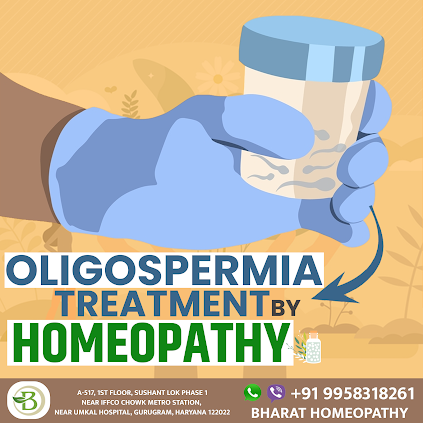Oligospermia is a medical condition characterized by a low sperm count in semen. It is the most common cause of male infertility and can make it more difficult for couples to conceive. Sperm count is considered low when there are fewer than 15 million sperm per milliliter of semen.
There are various causes of oligospermia, including:
1. Varicocele: This is a condition in which the veins in the testicles become enlarged, leading to overheating of the testicles and affecting sperm production.
2. Hormonal imbalances: Problems with the production or regulation of hormones, such as testosterone, luteinizing hormone (LH), or follicle-stimulating hormone(FSH), can impact sperm production.
3. Infections: Certain infections, such as sexually transmitted infections or reproductive tract infections, can affect sperm production and quality.
4. Genetic Factors: Chromosomal defects or inherited conditions are some genetic abnormalities that may contribute to low sperm count.
5. Lifestyle Factors: Smoking, excessive alcohol consumption, drug use, obesity, exposure to environmental toxins, and prolonged exposure to heat, are some lifestyle choices that may negatively impact sperm production.
6. Medical Conditions: Conditions like diabetes, thyroid disorders, testicular cancer, and autoimmune disorder are the most common cause of oligospermia.
What are the symptoms associated with oligospermia?
There are various oligospermia symptoms, including:
1. Infertility: One of the main symptoms of oligospermia is the inability to conceive a child despite regular unprotected sexual intercourse for a year or more.
2. Reduced ejaculate volume: Men who have oligospermia may have a lower volume of semen during ejaculation than is typically seen.
3. Changes in semen consistency: The consistency of semen may be thinner or watery compared to normal.
4. Sexual dysfunction: Men with oligospermia experience issues related to sexual function, such as erectile dysfunction or decreased libido.
5. Testicular pain or swelling: In rare cases, men with oligospermia may experience testicular pain or swelling, which could be indicative of an underlying condition.
6. Hormonal imbalances: Oligospermia is associated with hormonal imbalances, and results in symptoms like decreased body or facial hair growth, breast enlargement (gynecomastia), or reduced muscle mass.
What are the treatments considered for oligospermia?
Oligospermia treatment involves lifestyle modification which includes adopting a healthy lifestyle, maintaining a balanced diet, exercising regularly, avoiding smoking, avoiding alcohol consumption, managing stress, and getting enough sleep that improves sperm count.
In the treatment of oligospermia, medications may be prescribed to treat underlying conditions that contribute to oligospermia.




No comments:
Post a Comment